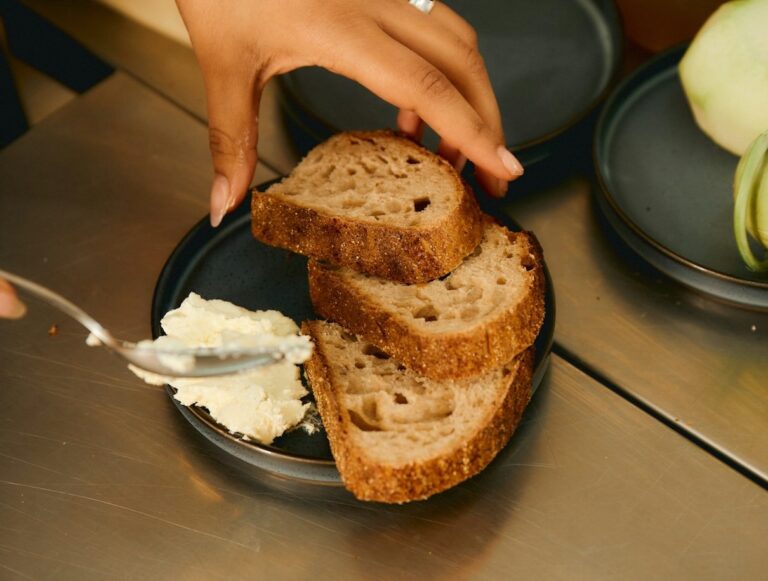As a registered dietitian, I often get questions about carb cycling. Many wonder what it is, whether it works, and how to do it safely. While it’s a popular approach among athletes, bodybuilders, and fitness trainers, carb cycling can be a confusing concept if you’re new to it.
Here’s what you need to know about carb cycling: how it works, why people try it, important considerations before starting, and examples of what a carb cycling plan might look like in real life.
What Is Carb Cycling?


Carb cycling is an eating strategy where you alternate your carbohydrate intake on different days, typically cycling between high-carb days, moderate-carb days, and low-carb days.
The idea is to time your carbohydrate intake to match your body’s energy needs. For example, you might eat more carbs on days you have intense workouts, and fewer carbs on days you’re resting or doing light activity.
Instead of following a fixed carbohydrate intake every day, carb cycling creates fluctuations or “wave-like” patterns in your carb consumption over the week.
While the concept might sound trendy, the principle behind it is simple: your body uses carbohydrates for energy, especially during moderate-to-high-intensity exercise. By eating more carbs when you need the fuel, and fewer carbs when you don’t, you’re aiming to optimize performance and potentially influence body composition.
Why Do People Carb Cycle?
People try carb cycling for a variety of reasons. Here are some of the most common:
1. Supporting Athletic Performance
Athletes and physically active individuals may use carb cycling to make sure their glycogen stores (the stored form of carbs in muscles and the liver) are replenished for demanding workouts. Having enough glycogen can improve endurance, strength, and recovery.
2. Body Composition Goals
Some people use carb cycling alongside strength training or fat loss programs. The strategy may help maintain muscle mass while in a calorie deficit, because high-carb days can support intense training and recovery, while low-carb days may help reduce overall calorie and carbohydrate intake.
3. Breaking Through Weight Loss Plateaus
While research on this is still emerging, some find that varying carb intake helps prevent the metabolic slowdown that can occur with consistent low-calorie or low-carb diets.
4. Managing Hormonal Responses
Carbohydrate intake influences hormones like insulin and leptin, which play a role in appetite regulation and metabolism. Carb cycling may help regulate these hormones, though more research is needed to confirm long-term benefits.
Important Considerations Before Trying Carb Cycling
Before you jump in, there are a few key points to keep in mind:
1. Carb Quality Matters
Carb cycling isn’t just about quantity. The quality of your carbs is equally important. Opt for nutrient-dense, high-fiber carbohydrates like fruits, vegetables, legumes, and whole grains. Avoid relying on refined carbs and added sugars, even on high-carb days.
2. Protein and Fat Are Still Essential
While carbs get most of the attention in carb cycling, protein and healthy fats are important every day for satiety, muscle maintenance, and overall health.
3. It’s Not for Everyone
People who are living with certain medical conditions, such as diabetes, hypoglycemia, or who have a history of disordered eating, may not be good candidates for following a carb cycling plan. Because it requires tracking and adjusting intake regularly, it can also become mentally and emotionally taxing for some people.
4. Energy Needs Should Guide You
Your carb needs depend on your activity level, body size, and goals. For example, an endurance runner training for a marathon will likely need more frequent high-carb days than someone lifting weights three times a week.
5. Hydration Is Key
Carbohydrates are stored in the body along with water, so shifting your carb intake can affect hydration levels. Be mindful of fluid intake and electrolyte balance, especially on low-carb days.
Is There Science Behind Carb Cycling?
While the theory of carb cycling is rooted in sports nutrition principles, research specifically on carb cycling as a long-term dietary approach is limited.
However, we know that:
- Higher carb availability can enhance performance in endurance and high-intensity exercise.
- Low-carb periods can increase fat oxidation (fat burning) during exercise.
- Strategic manipulation of carbs can influence glycogen stores, hormonal responses, and recovery.
In any case, matching carbs to daily needs is still up for debate, regardless if cycling carbs offer significant advantages for weight loss or body composition.
What Does Carb Cycling Look Like in Real Life?
Carb cycling can be structured in different ways depending on your goals, lifestyle, and preferences. Below are a few common approaches.
Example 1: High-Carb on Training Days
- High-Carb Days (2–3 days/week): Used on intense workout days, like heavy lifting or high-intensity interval training (HIIT).
- Moderate-Carb Days (2–3 days/week): Used on moderate workout days or when you’re active but not pushing intensity. Think – pilates, jogging, etc.
- Low-Carb Days (1–2 days/week): Used on rest days or days where you are doing a light activity like doing a yoga class or going on a walk.
Sample Weekly Schedule:
- Monday: High-carb (leg day)
- Tuesday: Moderate-carb (upper body workout)
- Wednesday: Low-carb (rest day)
Thursday: High-carb (HIIT training) - Friday: Moderate-carb (yoga + light weights)
- Saturday: High-carb (long run)
- Sunday: Low-carb (rest day)
Example 2: Event-Based Carb Cycling
Athletes sometimes increase carbs for several days before a competition or long race to maximize glycogen stores (a practice known as carb loading). The rest of the time, their carb intake may be more moderate.
Sample Pattern for a Race Week:
- Mon–Wed: Moderate-carb training days
- Thu–Fri: High-carb loading days before race
- Sat: Race day (high-carb breakfast)
- Sun: Low-carb recovery day
Example 3: Calorie Deficit With Carb Cycling
Some people use carb cycling during fat loss phases to help maintain performance in the gym. This might look like:
- High-carb days: Support intense workouts and help maintain muscle mass
- Low-carb days: Reduce overall calorie intake and encourage fat utilization
Sample Intake Targets:
- High-carb days: ~50–60% of calories from carbs
- Moderate-carb days: ~35–45% of calories from carbs
- Low-carb days: ~15–25% of calories from carbs
Bottom Line on Carb Cycling
Carb cycling can be an effective and flexible tool, if it’s done intentionally and in a balanced way. It can work best for highly active people, with varying training intensities throughout the week, people who are training for a specific event (i.e. running a marathon), or people who enjoy structured eating patterns and don’t mind tracking their carb intake. In contrast, it may not be a good fit for people with a history of disordered eating, certain medical conditions, or have activity levels that are relatively steady and moderate.
If you’re curious about trying it, I recommend working with a registered dietitian to determine your optimal carb ranges and avoid unnecessary restrictions.

